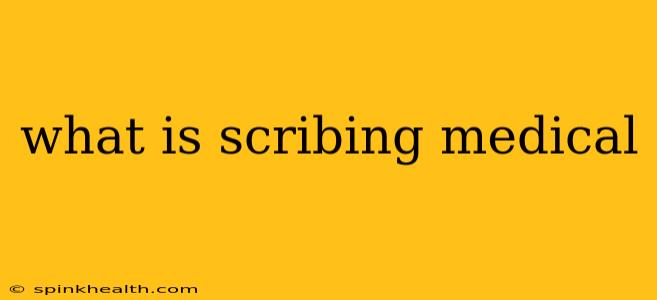What is Scribing in Medicine? A Day in the Life of a Medical Scribe
Imagine a world where doctors could focus solely on patient care, unburdened by the tedious task of charting and documentation. That's where medical scribing comes in. It's a rapidly growing field offering a unique blend of healthcare experience and administrative support, and it's far more than just typing what the doctor says. This isn't your grandma's secretarial job; it demands focus, accuracy, and a deep understanding of medical terminology and procedures.
Let's dive into a typical day for a medical scribe, and unravel exactly what this exciting career entails.
A Day in the Life: Following Dr. Ramirez
My name is Alex, and I'm a medical scribe working alongside Dr. Ramirez, a busy family physician. My day begins before the clinic opens. I review the patient charts scheduled for the day, familiarizing myself with their medical history, reason for visit, and any pertinent lab results. This preparation is crucial for efficient note-taking and anticipating the doctor's needs.
The first patient arrives – Mrs. Garcia, complaining of persistent headaches. As Dr. Ramirez examines her, I meticulously document everything: the patient's vital signs, the doctor's observations, the detailed history of present illness, and the results of the physical examination. I'm not just typing; I'm actively listening, ensuring every detail is captured accurately. I also have to know when to ask clarifying questions, to ensure I understand the medical jargon correctly. For example, if Dr. Ramirez mentions "positive Romberg sign," I need to understand its clinical significance to accurately document it.
Throughout the day, I’ll assist with various tasks, including:
- Charting: This is the core of my job – accurately and completely recording every aspect of the patient encounter in the electronic health record (EHR).
- Ordering tests: I assist Dr. Ramirez by entering orders for lab work, imaging studies, and referrals.
- Updating medical records: I ensure the patient's chart reflects the most current information, including diagnoses, treatment plans, and medication changes.
- Preparing paperwork: I help prepare documentation for insurance claims and other administrative tasks.
What skills do medical scribes need?
Medical Knowledge: While not requiring a medical degree, strong medical terminology knowledge is essential. I needed to quickly learn anatomy, physiology, common medical conditions, and the various procedures Dr. Ramirez performs. This understanding helps me anticipate what information the doctor will need and ask clarifying questions.
Typing Speed and Accuracy: It’s more than just fast typing; it's about accuracy. A single misplaced word in a medical record can have serious consequences. I’m constantly honing my skills.
Attention to Detail: This is absolutely critical. Missing a key detail could lead to a misdiagnosis or a treatment delay. My attention must be laser-focused at all times.
Is medical scribing a good career path?
What are the benefits of being a medical scribe?
This is a great question, and one I get asked often. For me, the most significant benefit is the invaluable experience I gain. I'm learning about the medical field firsthand, gaining practical knowledge and skills that would be difficult to obtain otherwise. It's a stepping stone towards other healthcare careers.
What are the requirements to become a medical scribe?
Typically, you need a high school diploma or equivalent, strong typing skills, and a basic understanding of medical terminology. Many programs offer specialized training to prepare you for the role.
What is the difference between a medical scribe and a medical assistant?
This is a common point of confusion. Medical assistants have more direct patient contact, assisting with examinations, taking vital signs, and administering medications. Scribes focus exclusively on documentation and administrative support.
My day wraps up with a final review of the day's charts, ensuring everything is accurate and complete before submitting them. While it's demanding, it's incredibly rewarding. I'm a vital part of the healthcare team, allowing Dr. Ramirez to dedicate more time to her patients, and it's a fantastic path for those aiming for a career in the medical field.

